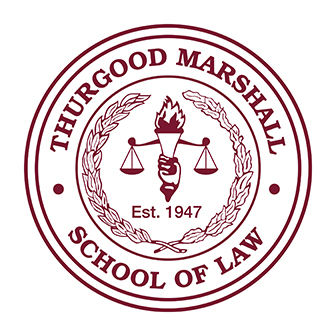Texas university remains out of compliance with admissions standards, ABA legal ed section finds
The ABA's Section of Legal Education and Admissions to the Bar has found that the embattled Texas Southern University Thurgood Marshall School of Law remains out of compliance with a key admissions standard. The section council has also asked the school to appear at its May meeting as it determines "whether to impose sanctions, including removal of approval."
According to a recently posted decision, the section council decided at its Feb. 20-22 meeting that Thurgood Marshall School of Law is noncompliant with Standard 501(b) requiring it to “only admit applicants who appear capable of satisfactorily completing its program of legal education and being admitted to the bar.” The school is also out of compliance with two interpretations of that standard, 501-1 and 501-2, the section’s decision states.
The council has asked the law school to submit a report by April 1 and appear before the council at its May 14-16 meeting.
Thurgood Marshall School of Law was previously found to be out of compliance with the admissions standard and its two interpretations in a June 2017 notice from the section council. At that time, the school was also determined to be noncompliant with Standard 301(a) and Standard 309(b), which reference a school’s academic program and academic support, respectively. The section council ordered the school to take remedial action.
In its recent decision, the section council found Thurgood Marshall School of Law is now in compliance with standards 301(a) and 309(b). Barry Currier, the ABA’s managing director of accreditation and legal education, declined to comment.
Thurgood Marshall School of Law did not respond to a request for comment, nor did a spokesman for Texas Southern University.
The law school’s dean is Joan R.M. Bullock, who assumed the role last summer after previously having worked at Thomas Jefferson School of Law in San Diego. Thomas Jefferson had its ABA accreditation withdrawn last year and is implementing an ABA-approved teach-out plan.
“Bullock is no stranger to overcoming institutional adversity and challenges, having represented Thomas Jefferson School of Law before the ABA regarding issues of compliance related to admissions, finances, academic support and instructional rigor,” a July 2019 press release announcing Bullock’s hiring by Thurgood Marshall School of Law said.
The scrutiny Thurgood Marshall School of Law has faced from the ABA is just one of many difficulties it has encountered in recent years.
An assistant law dean was accused of taking a $14,000 payoff for facilitating a scholarship and fraudulent admission for a law student. The assistant dean was also alleged to have provided false LSAT information for submission to the Section of Legal Education and Admissions to the Bar. The assistant law dean resigned.
Austin Lane, the president of Texas Southern University during the law school’s admissions scandal, was accused by TSU regents of failing to promptly report information about the assistant law dean’s conduct.
The regents and Lane reached a settlement last month in which the two sides agreed to part ways without any claim of wrongdoing, according to the Houston Chronicle.
Also at its February meeting, the council revisited 2019 findings that the University of Louisville Louis D. Brandeis School of Law and Florida Coastal School of Law were out of compliance with various sections of Standard 202, which deals with program resources.
Based on documents submitted by the law schools, the council determined that both demonstrated compliance with the standard, and subsequent hearings were cancelled. Public notice for those decisions can be viewed here and here.
“This is very good news for the law school. We believe we were in compliance all along, and this confirms it,” says Peter Goplerud, Florida Coastal’s president and dean.
Colin Crawford, dean of Louis D. Brandeis School of Law, was also pleased.
“When we received notice of noncompliance concerns in December 2019, we believed that we could satisfy their concerns. We are delighted that, by virtue of its approval, the council was satisfied with our response,” he says.
Write a letter to the editor, share a story tip or update, or report an error.



